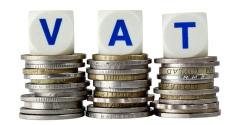

Reducing VAT to 5% on energy-efficiency improvement work would help more households than Green Deal finance can, the Federation of Master Builders has said in response to the latest statistics from the Department of Energy & Climate Change.
Reducing VAT to 5% on energy-efficiency improvement work would help more households than Green Deal finance can, the Federation of Master Builders (FMB) has said in response to the latest statistics from the Department of Energy & Climate Change (DECC).
38,259 Green Deal assessments have been carried out, but only four Green Deal plans have so far been signed. Research commissioned by the FMB shows cutting VAT to 5% on energy-efficient glazing and boiler replacements could result in an additional 57,668 households with both measures installed by 2020.
Brian Berry, chief executive of the FMB, said: “These latest Green Deal statistics show the scheme is attracting some interest. However, there are disappointingly few households actually using Green Deal finance to pay for the work.
“Green Deal finance was supposed to bring about a dramatic increase in the number of people improving the energy efficiency of their property by removing the upfront cost, but the complexity of the scheme and the high interest rate is severely limiting the number of households that see the Green Deal as relevant. Instead, reducing VAT on energy-efficiency improvement work would create a real incentive and allow small, local firms to carry out the work, which they are currently struggling to win under the Green Deal.
“Government is doing its best to portray the Green Deal as a success, but it’s now time for honest debate on how to inspire greater uptake of energy-efficiency improvement work in order to cut carbon emissions and protect households against rising energy prices. We need to see a range of fiscal incentives to stimulate a long-term increase in demand for this type of work, including a targeted VAT cut and a reduction in Stamp Duty Land Tax for the most energy-efficient properties.”
If you'd like to keep up-to-date with the latest developments in the heating and plumbing industry, why not subscribe to our weekly newsletters? Just click the button below and you can ensure all the latest industry news and new product information lands in your inbox every week.